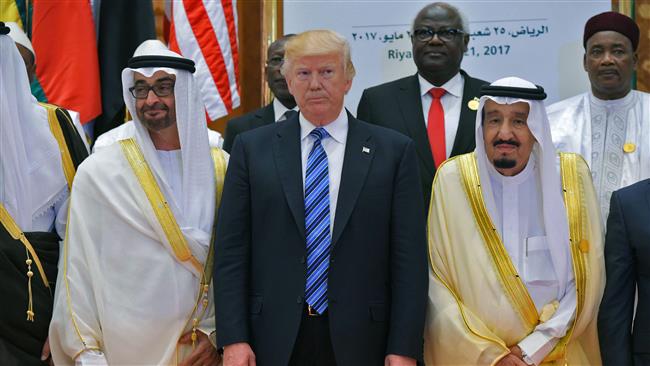
RNA - Omar Nashabe Omar Nashabe, from Al-Akhbar Newspaper, believes that the United States has triggered the diplomatic crisis in the Persian Gulf region, and that the decision to isolate Qatar has nothing to do with Saudi Arabia.
“It is clear from the statements and from the tweets of [US] President [Donald] Trump that he said this is the outcome of his visit to the region. This comes immediately after the visit, so it is normal that one would expect that this was pre-planned and the president confirmed that,” he said.
“This tension is really a representation of what the politics of the Middle East will become,” the analyst noted, emphasizing that it is not just “a passing incident between Qatar and its surrounding nations.”
Nashabe further recalled that Saudi Arabia was accused of supporting terrorist organizations based on the leaked emails of former secretary of state Hillary Clinton, arguing that Riyadh has probably “bought itself out” by making business agreements with President Trump.
He described Saudi Arabia’s support for Daesh and al-Qaeda as totally “illegitimate” under international law, arguing that these terrorist organizations pose a threat to the security of the entire world and not just the Middle East.
Nashabe further opined that it is not in the interest of Saudi Arabia to isolate Qatar, predicting that the tensions among the Persian Gulf Arab countries would escalate.
He suggested that Riyadh enter into dialog with Doha in order to create stability in the region, arguing that any escalation could lead to “serious clashes” with the potential to endanger all sides.
“The security in the (Persian) Gulf should be paramount and this is the interest of the various nations. I think this is what they should focus on if they want to protect their interests,” the analyst concluded.
Meanwhile, the other panelist on the program Michael Lane, member of the American Institute for Foreign Policy, opined that Qatar’s relationship with Iran is the “primary reason” for this diplomatic rift, adding that Riyadh has engineered this situation in an effort to persuade Doha to change its policy.
He went on to say that Saudi Arabia is trying to limit the emergence of Iran as an influential player in the region, and therefore views having relations with the Islamic Republic as a “serious crime against its interests.”
The analyst further rejected assertions that the United States has created the ongoing tensions in the Persian Gulf, arguing that President Trump’s tweets cannot be taken “literally” because he has “a flair for the dramatic.”
847/940